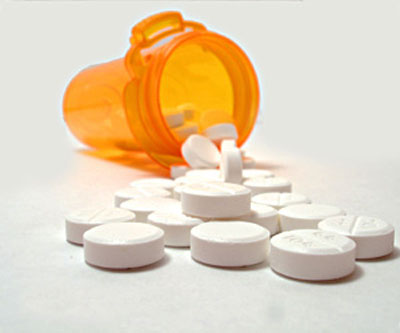|

by Carolanne Wright
April 18, 2013
from
NaturalNews Website
|
About the author
Carolanne enthusiastically believes if we want to see
change in the world, we need to be the change.
As a
nutritionist, natural foods chef and wellness coach, Carolanne has encouraged others to embrace a healthy
lifestyle of organic living, gratefulness
and joyful
orientation for over 13 years.
Through her website
www.Thrive-Living.net she looks forward to connecting
with other like-minded people
who share a similar
vision. |

America has one of the highest rates of
bipolar disease in the world with a
staggering 5.7 million adults diagnosed.
Characterized by periods of bone
crushing depression swinging to cycles of mania, the disorder can
destroy families and finances while shortening lifespan due to high
suicide rates.
Yet the disease has varying degrees of
severity and often goes unrecognized. To make matters worse, the
mainstream medical establishment consistently advocates
pharmaceutical drugs as a universal panacea.
Sadly, these treatments are rife with
side-effects.
In response, many are beginning to seek alternatives
to conventional medicine - and finding success with natural
remedies.
Cycles of
heaven and hell
Bipolar I is the most dramatic manifestation of the disease.
Patterns of intense euphoria, inflated
self-esteem and a racing mind alternate with depressive periods of
anxiety, fatigue and suicidal thoughts or behavior. It causes
significant disruptions and problems in family life, work and
school. The manic episodes can be extremely dangerous as the person
feels 'invincible.'
The suicide rate during depressive episodes
falls between 10 and 20 percent
Bipolar II is less severe. Elevated moods alternate with
irritability or depression, but the individual is generally
functional. Hypomania, a moderate form of mania, is present. Periods
of depression tend to be more lengthy than cycles of elation.
Cyclothymic disorder is the most mild type of bipolar disease.
Hypomania and depression can be troublesome, but the highs and lows
tend to be easier to manage.
Due to the more subtle manifestations of bipolar II and cyclothymic
disorder, both are frequently diagnosed as depression and drugged
accordingly. However, this often aggravates the situation as
antidepressants trigger manic episodes in 5 to 10 percent of
patients.
The drugs also carry the common
side-effects of weight gain along with loss of libido and mental
clarity.
Building a
solid foundation for a calm mind
Instead of immediately resorting to pharmaceutical drugs, lifestyle
and nutritional choices offer an alternative.
Since stability of mind is closely
linked with diet, nutrient dense meals are imperative. Several
ounces of cold water fish like wild-caught salmon, mackerel and
herring should be consumed daily.
Likewise, supplementing with
high-quality fish oils helps support proper brain chemistry as well.
In fact, countries that have the highest
consumption of fish (Japan, Iceland, Korea, Taiwan and Puerto Rico)
also have the lowest rates of bipolar disease.
-
Vegetables, fruit, potatoes,
seaweed, lemons, eggs, seeds and nuts are also beneficial.
-
Adequate levels of magnesium are
important too.
According to the nutritional website
Food For the Brain:
"Magnesium is interesting in bipolar
disorder because of its chemical similarity to lithium (lithium
being the drug most commonly used as a mood stabilizer).
In
fact, there is some evidence that the drug lithium may attach to
the places inside the cell where magnesium is supposed to
attach.
In studies (Chouinard, Giannini),
some people with bipolar disorder or other psychiatric illnesses
had differences in the amounts of magnesium in their blood.
There have been some studies where magnesium was added to other
treatments to stop symptoms of mania or rapid cycling."
Individuals suffering from bipolar
disorder should avoid the following:
Seeing that stress can exacerbate the
condition, lifestyle support is helpful.
Yoga, meditation, mild exercise and
therapies such as
Holotropic Breathwork have received
positive feedback from those suffering with the disease.
Sources
|


